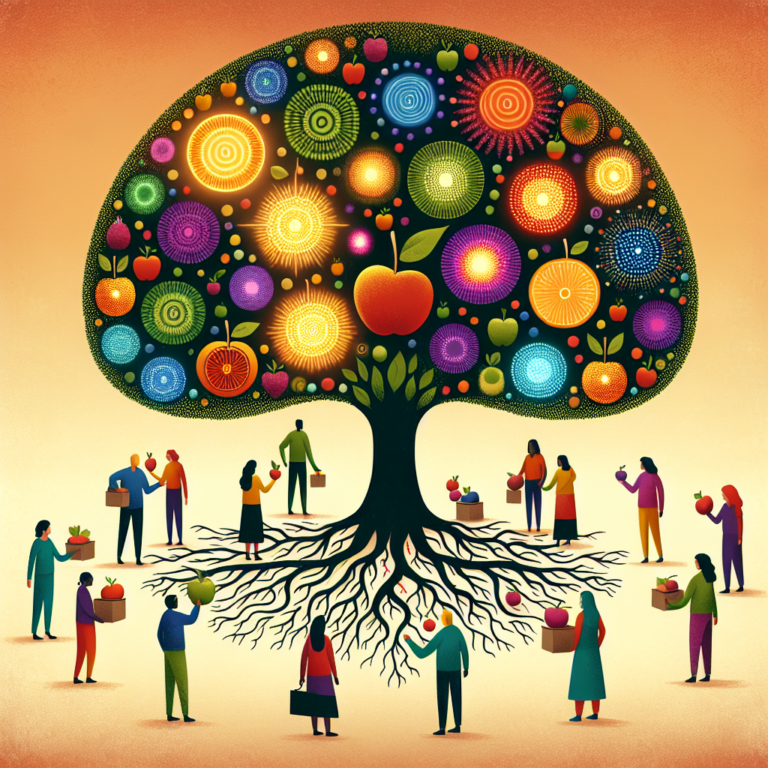Introduction to Generational Family Karma
In the realm of spirituality and psychology, the term ‘karma’ often conjures up ideas of moral cause and effect, where the actions of an individual influence their future circumstances. However, the concept of generational family karma expands this notion, encouraging a deeper examination of patterns, behaviors, and emotional wounds that traverse generations within a family system. Understanding generational family karma can be pivotal for those seeking personal growth, healing, and a chance to break free from longstanding cycles of trauma or negativity.
Defining Family Karma
Family karma refers to the collective experiences, beliefs, and unresolved issues that families carry through generations. It signifies the inherited emotional and psychological imprints that are passed down from one generation to another, often unconsciously. This familial legacy includes both positive traits—like resilience, creativity, and love—and negative patterns—such as addiction, abuse, and dysfunction.
In many cultures, particularly in Eastern philosophies, the concept of karma is understood to be multifaceted, encompassing not just individual actions but also the collective actions of families and communities. Every family has its stories and legacies, which shape the identities and experiences of its members.
The Cycle of Generational Karma
The cycle of generational family karma can often be traced through specific themes or patterns, such as:
- Trauma: Events like war, migration, loss, or abuse can leave lasting scars that influence future generations. Family members may adopt coping mechanisms that reflect their ancestors’ experiences.
- Beliefs: Familial beliefs about money, relationships, health, and self-worth are often ingrained from a young age. These beliefs can limit personal growth if they are rooted in fear or scarcity.
- Behavioral Patterns: Repeated behaviors, whether positive or negative, can create cycles of success or dysfunction within families. For instance, patterns of addiction or mental illness may recur if unaddressed.
How Family Karma Affects Individual Lives
Understanding how generational family karma affects individual lives requires a closer examination of the ways it influences personal identity, relationships, and life choices:
Identity Formation
A person’s identity is often shaped by familial dynamics. Individuals may carry burdens or expectations that do not belong to them, yet feel pressure to fulfill these roles due to the legacy of their ancestors. For instance, the “golden child” may live with the weight of perfectionism, while the “black sheep” may struggle with feelings of inadequacy and disconnect.
Relationship Dynamics
The patterns established in family systems often manifest in an individual’s relationships outside of the family. Understanding how one’s family history influences interactions with partners, friends, and colleagues can reveal repeating cycles of conflict, attachment styles, and emotional responses that need to be addressed for healthier relationships.
Decision Making and Life Choices
Many choices, including career paths, life partners, and personal pursuits, can be heavily influenced by familial expectations and past experiences. Some individuals may pursue careers aligned with family expectations, while others may act out against them, creating a reactive rather than proactive life strategy. Recognizing these patterns is crucial for making conscious decisions that align with one’s values and aspirations.
Recognizing Generational Family Karma
The first step toward understanding generational family karma is recognizing the signs within one’s own family lineage. Here are some ways to identify these patterns:
- Family Histories: Analyzing family histories through storytelling or genealogical research can provide insight into shared experiences and traumas.
- Patterns of Behavior: Observing oneself and family members for repeated themes in reactions, relationships, and emotional responses can highlight ongoing cycles.
- Emotional Triggers: Noticing emotional reactions to specific family gatherings, discussions, or memories can reveal deeper underlying issues.
The Importance of Healing Family Karma
Healing generational family karma is crucial for personal empowerment and breaking toxic cycles. Here are some reasons why it matters:
Personal Empowerment
Acknowledging and understanding family karma empowers individuals to break free from entrapments of the past. It provides clarity in decision-making and personal growth, encouraging autonomy rather than passivity in shaping one’s life.
Improving Relationships
By understanding and addressing family patterns, individuals can foster healthier relationships. This understanding promotes communication, empathy, and the ability to set boundaries, leading to stronger connections with others.
Cultivating Emotional Resilience
When individuals recognize inherited patterns and work through emotional pain, they cultivate resilience. This resilience can help them navigate life’s challenges and foster a healthier emotional landscape for themselves and future generations.
Methods for Healing Generational Family Karma
Healing generational family karma requires conscious effort and intentional practices. Here are several methods that can assist in this journey:
Therapy and Counseling
Professional therapy can provide a structured environment to explore family dynamics and emotional wounds. Therapists specializing in family systems, trauma, or generational healing can guide individuals through understanding their lineage while promoting healing solutions.
Family Constellation Therapy
Family constellation therapy is a specialized approach that visualizes familial relationships and dynamics. This method allows individuals to observe and reframe burdens that may not be their own, gaining insight into their family’s emotional landscape.
Meditation and Mindfulness
Practicing meditation and mindfulness can help individuals connect with their emotional states and recognize inherited patterns. Techniques like guided visualizations can help in processing trauma and promoting healing.
Journaling
Writing about family experiences, feelings, and beliefs can provide clarity and insight. Journaling helps in recognizing patterns and offers a safe space for exploring difficult emotions related to family karma.
Conclusion
Understanding generational family karma is a powerful tool in the journey toward personal healing and growth. By recognizing the dynamics that shape our lives and acknowledging the burdens passed down through generations, individuals can take proactive steps towards breaking negative cycles. Healing family karma not only transforms personal experiences but also fosters resilience and healthier relationships for future generations. It encourages us to rewrite our narratives, allowing for a richer, more empowered existence that is free from the shadows of the past.
FAQs About Generational Family Karma
What is generational family karma?
Generational family karma refers to the emotional and psychological patterns, behaviors, and unresolved issues that are passed down from one generation to another within a family. It includes both positive traits and negative patterns that influence the lives of family members.
How does family karma affect me personally?
Family karma can influence your identity, relationships, and life choices by shape yourself based on inherited beliefs and emotional imprints. Recognizing these influences allows for greater personal empowerment and informed decision-making.
What steps can I take to heal family karma?
Steps to heal family karma include seeking therapy, practicing meditation, journaling about family experiences, and engaging in family constellation therapy to understand and reframe inherited patterns and traumas.
Can family karma be positive?
Yes, generational family karma can include positive traits such as resilience, creativity, and love that enhance personal growth and community strength. Acknowledging both positive and negative aspects is crucial for holistic healing.
How can I break the cycle of family trauma?
Breaking the cycle of family trauma involves awareness, exploration of emotions, and a commitment to healing. This can be achieved through therapy, open communication, setting boundaries, and consciously working to adopt new, healthier behaviors.
, It seems like you might have intended to provide a prompt or ask a question but didn’t include it. How can I assist you today? If you have a specific topic or idea in mind, feel free to share!, #Understanding #Generational #Family #Karma #Matters, #Understanding #Generational #Family #Karma #Matters, 1734049741, understanding-generational-family-karma-what-it-is-and-why-it-matters





